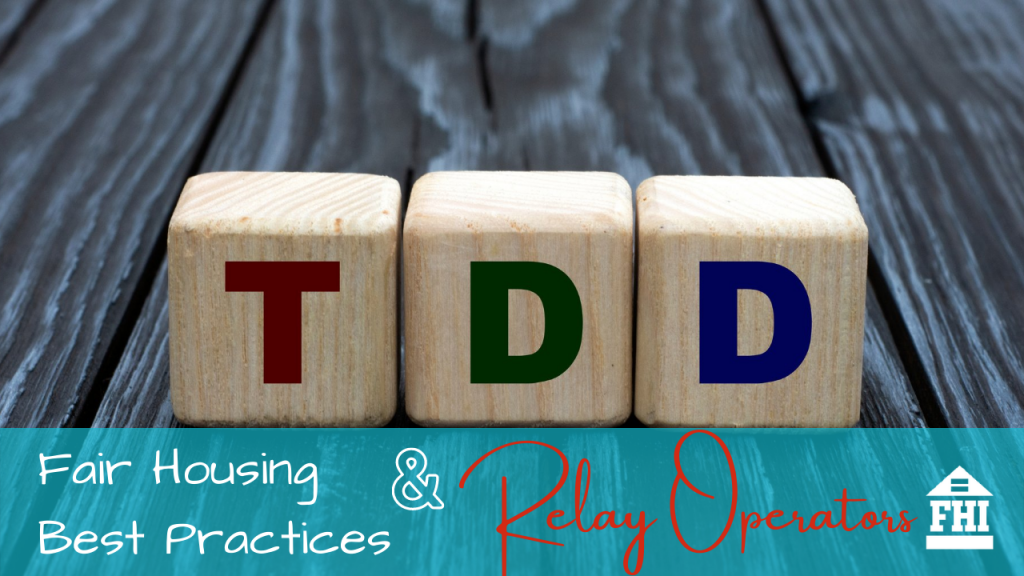How do you handle a relay operator phone call in the leasing office? What are some fair housing best practices? Join us as we discuss the do’s and don’ts of handling relay operator calls.

Estimated reading time: 4 minutes
Table of contents
Results of a Fair Housing Relay Operator Testing Campaign
A couple of years ago, a massive testing campaign was put together by a fair housing group and a top advocacy group on behalf of the deaf and hard of hearing communities. What was the result?
The results showed that nearly half of the properties tested did not handle relay operator calls correctly. They either hung up or, even worse, made comments like: “I don’t have time for this” or “I don’t know what this is about” and then hung up.
As you can imagine, this led to multiple lawsuits that claimed that by refusing to talk on the phone via a relay operator and provide information to a deaf or hard of hearing individual, this was basically a denial of housing because of a disability.
Relay Operator Call and Fair Housing Training
Clearly, there is a need for training and role-playing to ensure that staff members know and clearly understand how to handle a relay call correctly. For example, how would one of your staff handle the following situation?
They pick up the phone and are informed that this is a relay operator call, and then a person walks into the office. What should they do? They may feel pressured to end the call and address the individual that is standing there staring at them, but this could immediately give the wrong impression.
By doing this, they are sending the message to both the relay operator and the deaf or hard of hearing individual that you hung up on them in favor of speaking with the person in front of you that can hear and speak.
The clear recommendation here is that if someone walks into the office and you are on a relay operator call, you should acknowledge the person and inform them that you are on a call that may take some time but that you will be with them as soon as you can. Now your staff member is ready to focus on the needs of the caller. What are some things that should be remembered when handling the call?
The first thing leasing consultants need to remember when they are on the phone with a deaf or hard of hearing individual is there is no need for them to acknowledge that the person is deaf. What do we mean by this?
For example, you do not need to explain that you have units for the deaf or hard of hearing unless they specifically inquire about them. Leasing consultants should conduct this phone call like any other and share all the basic information about the property.
How To Avoid a Fair Housing Discrimination Complaint
We know that these types of calls can be time-consuming, but please do not become impatient and try to cut the conversation short; instead, be sure to give all the information you typically would as part of your sales presentation. By following these steps, you can ensure that every individual is cared for appropriately and avoid a possible fair housing complaint.
While relay operator calls are few and far between, we still need to be aware of fair housing best practices and add them to our training protocols. Encourage your staff to practice them regularly, so you never have cause for concern when a tester comes to call.
You May Also Like:
